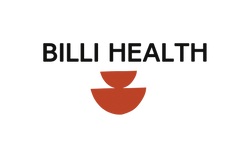By Claire Broeren (Acupuncturist and Chinese Medicine Herbalist)
Book an Appointment with Claire
Polycystic ovary syndrome (PCOS), is a common endocrine-metabolic disorder that affects 8–13% of reproductive aged women. The main drivers behind PCOS are insulin resistance, inflammation, genetic predispositions and excess androgen hormones (testosterone or DHEA).
PCOS symptoms show up differently for everyone but typically symptoms are those related to the reproductive system as well as those that are metabolic.
Symptoms of PCOS can include:
• Irregular menstrual cycles (Long cycles or short cycles)
• Amenorrhea (no period)
• Anovulatory cycles (not ovulating which can lead to fertility problems)
• Acne
• Thinning/hair loss on head
• Excessive facial/body hair growth (hirsutism)
• Fatigue
• Mood disturbances
• Food cravings (carbs)
• Insulin Resistance (can lead to type 2 diabetes)
• Weight changes
• Body image disturbances
• Headaches
• Digestive Issues
Although painful periods are not a symptom of PCOS, a lot of women with PCOS do experience painful periods due to the hormonal imbalances.
Not everyone with PCOS will have all of the symptoms listed above, however in order to be diagnosed with PCOS, you must have at least two of the following signs/symptoms:
1. You experience irregular periods/no periods
2. Elevated androgen levels, which can be detected in a blood test or symptoms of
excessive hair growth on face/body, hair loss on head and acne.
3. An ultrasound that shows you have polycystic ovaries (more than 20 follicles on one or both ovaries or the size of one/both ovaries has increased by 10ml)
The western medicine approach to treating PCOS, if you don’t plan to become pregnant is commonly to prescribe the oral contraceptive pill. The reasoning behind this is to help control your menstrual cycle by making it more regular as well as lowering your androgen levels. Diabetes medication like Metformin are also often prescribed to help manage the insulin resistance that is so common with PCOS. In reality, these interventions mainly mask the symptoms of PCOS rather than addressing the root causes of PCOS. The oral contraceptive pill suppresses ovulation which is one the main issues we want address if
you’re having an anovulatory cycle!
Another avenue to explore when it comes to treating PCOS is Chinese Herbal Medicine and Acupuncture. Both of these, either as a combined treatment or stand alone treatments have been shown to improve PCOS outcomes by regulating the menstrual cycles, improving insulin sensitivity and reducing androgen levels. There are many different Chinese herbal formulas that can be used to address PCOS, depending on your presentation (not just based off symptoms but rather looking at the root cause in Chinese Medicine).
There are many other supporting therapies, dietary and lifestyles changes that can be beneficial to those with PCOS. Focussing on regulating your nervous system, prioritising sleep, eating whole foods and exercising is a great way to start managing PCOS. Chinese Medicine and Acupuncture can be a great additional intervention if you feel like you’re struggling to get on top of it.

